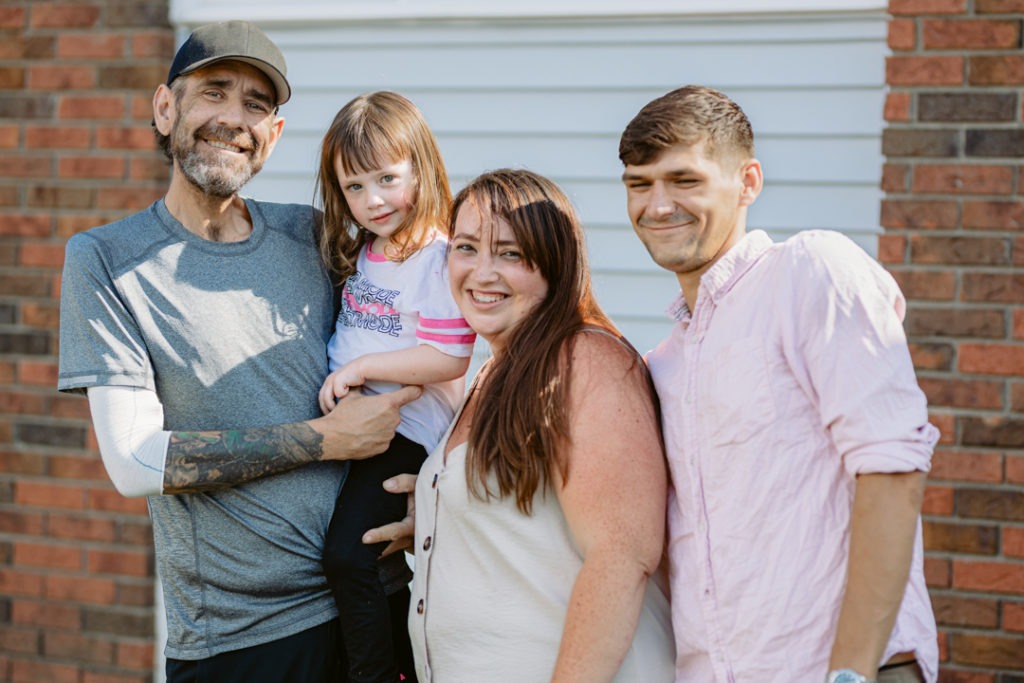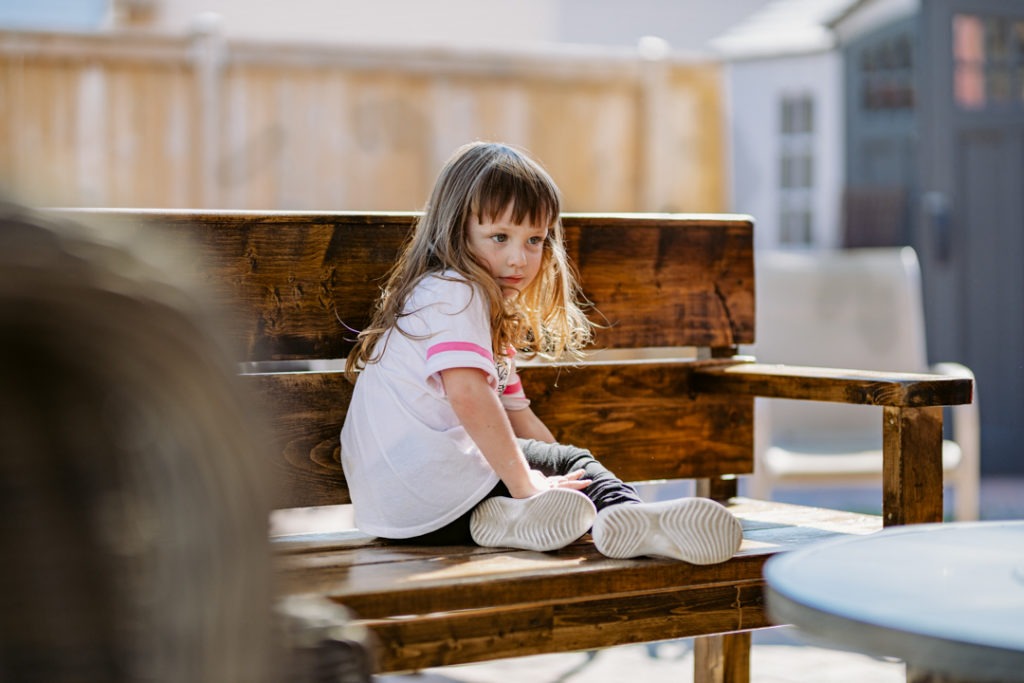
Virtual developmental assessments provide security of home environment
Like many children, three-year-old Georgia loves car rides, playing with dolls, singing and dancing. But challenging behaviours such as screaming and banging her head, and some developmental delays in speech caused Georgia’s mom Sarah Ross to bring her to their family doctor.
Ross was referred to the Autism Spectrum Disorder Diagnostic Hub at Ron Joyce Children’s Health Centre (RJCHC), one of five diagnostic hubs in the province. These hubs assess children and connect them with services in their community.
Virtual assessments
Georgia was scheduled for an appointment in June, but since the pandemic required in-person services to be temporarily paused, the assessment took place virtually.
These type of assessments typically take place over two virtual visits. During the first appointment, an allied health professional such as an early childhood resource specialist (ECRS) collects information such as demographic data, reasons for referrals, concerns, supports, and detailed developmental history. After this, a combined appointment with the ECRS and the doctor is arranged for a more structured observation of the child. Based on the information gathered, the clinicians provide feedback to families and share follow-up plans.
A few days after Georgia’s initial appointment with the ECRS, she met online with developmental pediatrician Dr. Mohammad Zubairi who guided a series of parent-led activities.
“He watched Georgia play and asked me to do certain things, such as putting a snack she was unable to open in front of her to see how she would react,” says Ross.
These virtual visits are all about prompting the parent to do certain things with their child, says Dr. Zubairi. Examples include watching them play with toys independently or with their parent, such as passing a ball; watching how they share their play experience and communicate with those present; and watching how they react to their name being called when the parent tries to get their attention.
If a child is diagnosed with autism, the hub connects their family with services in the community. In Georgia’s case, Dr. Zubairi diagnosed her with a global developmental delay. She doesn’t have autism spectrum disorder, but her social skills and behavior are closer to that of a two-year-old.
A unique benefit
Visits are done through a computer, tablet or phone, using videoconferencing. If internet access is a challenge, families can arrange a phone conversation. While the clinics are virtual, if a physical assessment is required, the family can come into McMaster Children’s Hospital for an appointment. The goal is to gradually increase these virtual assessments to the volume of patients the clinic was seeing pre-COVID-19 to alleviate pressures on the growing waitlist.
There is a unique benefit to these virtual visits.
“Seeing kids in their comfort spaces which is their home, gives us a better understanding of what they are like in a non-clinical, more natural environment,” says Dr. Zubairi. “When kids come to our clinic, it’s an unfamiliar environment with new people that they are meeting. These kids may already have some behavioural challenges, so this can result in underperformance. Seeing them in their home is probably going to add to the value of the quality of information.”
Making progress
Within a week of her assessment, Georgia was connected to a behavioral consultant at RJCHC for therapy through virtual appointments. Eventually, she will be connected with other professionals working in the Specialized Developmental and Behavior Services program, such as a speech language pathologist.
Ross says therapy has been working. Georgia’s tantrums have reduced from four or five a day down to two because of the strategies she and her family have been learning.
“We let her know what will be happening beforehand, such as telling her ‘we are leaving in ten minutes.’ We keep track of why she is upset and what we can do to calm her down. We’re not giving into what she wants and we ask her questions like ‘do you want to do this instead?’ and tell her to use her words.”
Georgia is beginning to use words such as please and thank you. In the fall, her family is planning for her to start preschool equipped with some of the tools she is learning.

